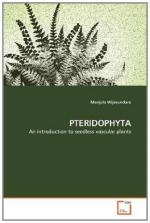|
This section contains 100 words (approx. 1 page at 300 words per page) |
A plant that possesses specialized conducting tissue (xylem and phloem) for the purpose of transporting water and solutes within the root-stem-leaf system. Although aquatic forms exist, most vascular plants are terrestrial and include herbs, shrubs and trees. The development of vascular transport allowed plants to become larger, leading to their eventual domination of terrestrial ecosystems. The uptake and translocation of soluble pollutants from the soil into the plant occurs through the roots and the conducting tissue. Adverse effects of such pollution on vascular plants include stunted growth and death of all or part of the plant.
|
This section contains 100 words (approx. 1 page at 300 words per page) |


